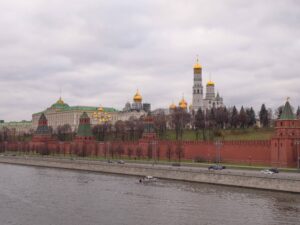Can the determination of a single individual shape the course of history? Dominique Ziegler’s play, Vladimir’s Dream, delves into the life of Vladimir Ilyich Ulyanov, better known as Lenin, the mastermind behind the October Revolution. Through a compelling narrative, Ziegler sheds light on Lenin’s unwavering vision, his relationship with his wife and comrade Nadezhda Krupskaya, and the pivotal moments leading to one of history’s most consequential revolutions.
The Final Days of a Revolutionary
Set in 1923, the play opens with Lenin, frail and confined to a clinic in Vichnie Gorki near Moscow. The scene depicts an intense moment where Lenin attempts to send a letter to Trotsky, only to have it intercepted by a health worker under Stalin’s orders.
This act of censorship raises haunting questions:
- What vital message was in Lenin’s letter to Trotsky?
- Could this letter have altered the trajectory of Soviet history?
- How might the global geopolitical landscape have changed?
The scene serves as a poignant metaphor for the power struggles and suppressed ambitions within the Soviet leadership during Lenin’s final days.
Lenin’s Journey from Lawyer to Revolutionary Icon
Born into a family marked by tragedy, Lenin’s revolutionary path was heavily influenced by the execution of his elder brother, Alexander, for opposing the Tsar. Determined to continue the fight, Lenin adopted the principles of Marxism and organized workers across Russia, laying the groundwork for the class struggle.
Key Milestones:
- Inspired by Karl Marx’s philosophy, Lenin became the architect of the Russian Revolution.
- Exiled multiple times, he honed his ideology in Geneva, Zurich, and London.
- Collaborated with figures like Trotsky and Krupskaya to mobilize support for the Bolsheviks.
Ziegler’s narrative portrays Lenin as both a benefactor of humanity and a controversial figure whose actions reshaped global politics.
A Theatrical Masterpiece
Vladimir’s Dream combines innovative staging by Robert Nortik with Soviet realist aesthetics. The use of sliding frames, archival images, and dramatic lighting brings Lenin’s life to vivid focus, from his formative years to the tumultuous revolutionary era. The play refrains from delving into Lenin’s personal life, instead emphasizing historical milestones to engage younger audiences and spark dialogue about his enduring legacy.
A Revolution That Still Resonates
Lenin’s life and the revolution he led remain subjects of fascination and debate. Was he a visionary leader or an authoritarian force? Vladimir’s Dream doesn’t offer definitive answers but invites viewers to reflect on the complexities of his character and the transformative impact of his actions.
Ziegler’s work stands as a compelling reminder of the enduring relevance of history, urging us to question, understand, and learn from the past.